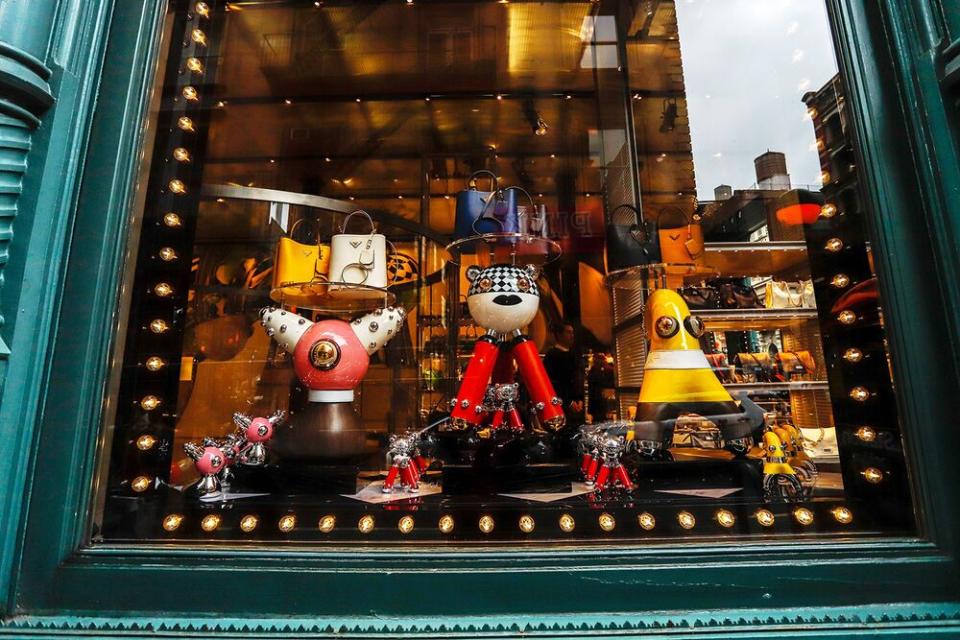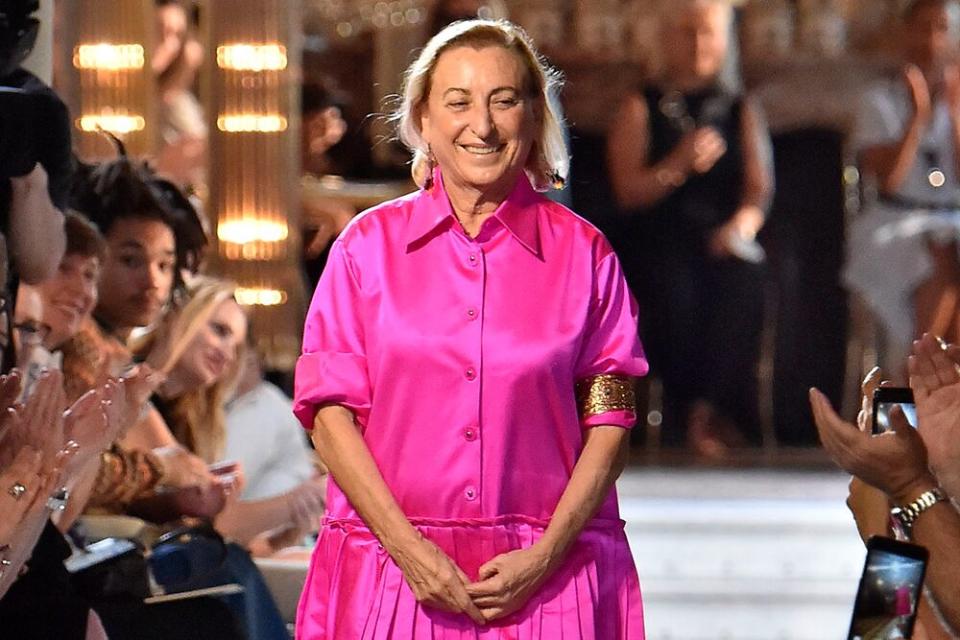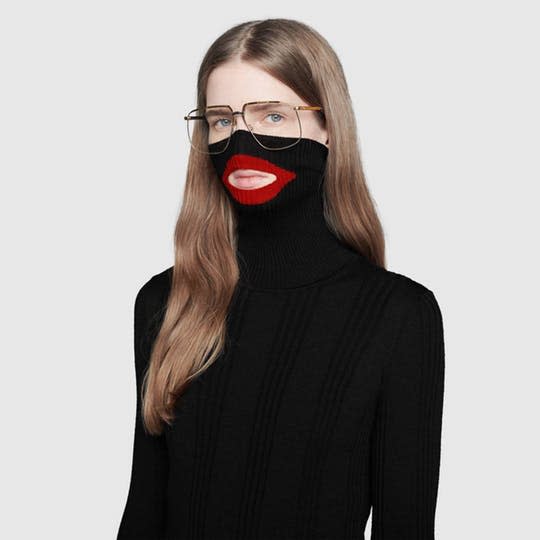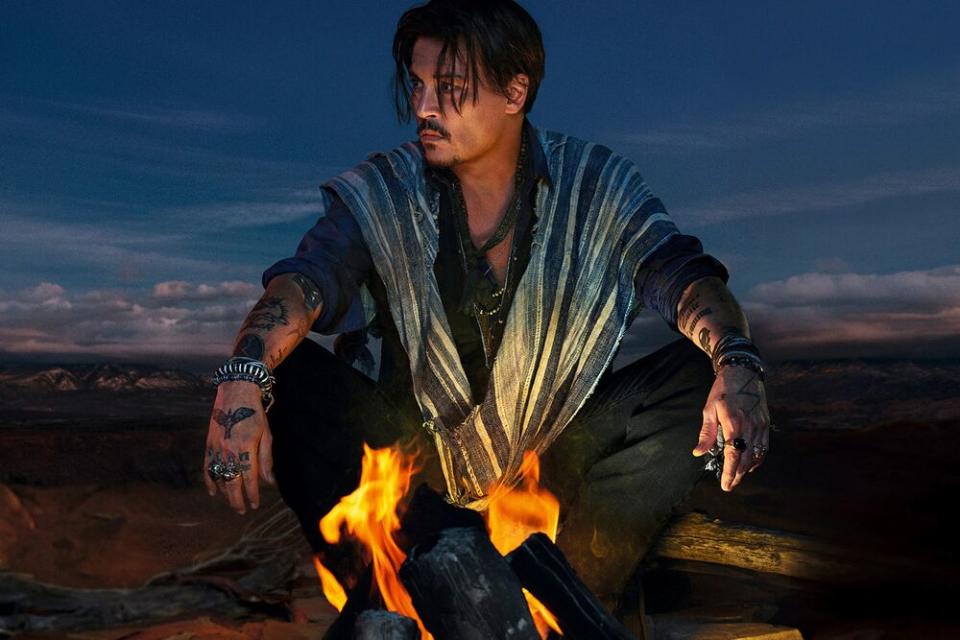N.Y.C. Commission on Human Rights Tasks Prada with Providing Racial Equity Training for Employees
One year after Prada launched an in-house diversity and inclusion council in response to accusations of racism, the New York Times reports that Chief Executive Officer and Lead Creative Director Miuccia Prada and her team will undergo sensitivity and racial equality training following an investigation by the New York City Commission on Human Rights.
The law enforcement agency has been investigating and in settlement talks with Prada since 2018 when the Italian fashion house displayed cartoon characters in its SoHo, N.Y.C. store window that many accused of being racist for its resemblance to blackface imagery. (At the time, Prada quickly removed the figurines and issued a public apology.) The two parties came to an agreement and signed a deal on Tuesday, according to the New York Times.

“We share the New York City Commission on Human Rights’ commitment to ensuring that diverse perspectives are represented and respected, and we are pleased that our diversity and inclusion initiatives are aligned with their vision for a more equitable, inclusive industry,” a spokeswoman for Prada said, according to the New York Times. “Prada is gratified to have been able to collaborate with the New York City Commission on Human Rights on a mutually agreeable conclusion.”
RELATED: Prada Removes ‘Racist’ Products with ‘Blackface Imagery’ from Stores

The article also reported that all New York employees will have “racial equity training,” as well as executives in Milan, including Miuccia Prada, her husband and Prada chief executive Patrizio Bertelli and other senior employees, given that their decisions impact others in the company.
Prada is also to hire a diversity and inclusion officer to review designs before they are marketed and sold to American consumers. And next year, the brand is to report back to the commission on the “demographic make-up” of the staff at every level.
Two other luxury brands recently accused of racism and exploitation, Gucci and Christian Dior, are also reportedly negotiating with the commission.
In 2019, Gucci came under fire for selling an $890 “Balaclava” sweater featuring a turtleneck top that covered half the face and had large red lips printed around a mouth cut-out. The design was checked by many for evoking racist blackface iconography.
At the time, Gucci issued a statement on Twitter apologizing for the insensitive piece.
“Gucci deeply apologizes for the offense caused by the wool balaclava jumper…We consider diversity to be a fundamental value to be fully upheld, respected, and at the forefront of every decision we make,” the brand shared.

And just a few months later, Dior received backlash after a video teaser for a new Sauvage fragrance campaign starring Johnny Depp debuted, which featured Canku Thomas One Star, a member of the Rosebud Sioux Tribe in South Dakota, performing the Fancy War Dance wearing a colorful traditional ensemble.
Just minutes after sharing the videos to the brand’s Twitter, Dior received a slew of negative reaction.
When asked for comment to the backlash, Dior provided PEOPLE the full press release of the campaign. The brand wrote that the film was “developed as a close collaboration between the House of Dior and Native American consultants from the 50-year old Indigenous advocacy organization, Americans for Indian Opportunity (AIO), in order to respect Indigenous cultures, values and heritage.”
One day later, Dior pulled its campaign video from all social media accounts including Twitter, Instagram and YouTube.

“There was never — and how could there be or how would there be — any dishonorable [intent],” Depp told The Hollywood Reporter. “The film was made with a great respect for the indigenous people not just of North America but all over the world. It’s a pity that people jumped the gun and made these objections. However, their objections are their objections.”
He expressed that he wished the world could have seen the full video, instead of just the short sneak peek. “A teaser obviously is a very concentrated version of images and there were objections to the teaser of the small film,” he said but hopes they reach a common ground to air the full video.
RELATED: 13 Fashion Controversies That Sparked Passionate Debate
“The ‘Sauvage’ campaign released by Dior today is offensive, racist and cultural appropriation at its worst by a corporation that is exploiting Native peoples and culture for profit,” Crystal Echohawk, executive director of IllumiNative, a Native American advocacy group, told Business of Fashion at the time. “This is a company that is looking to profit off of advancing a harmful stereotype about Native people.”
Sapna V. Raj, deputy commissioner of the New York City Commission on Human Rights, hopes this action demonstrates a “new model of corporate accountability.”
“I don’t know that we realized previously so many major fashion houses had this ignorance of the history of racism in this country,” she told The New York Times. “We hope companies realize they need to be very careful about how they market and advertise — that they need to have a larger social and cultural consciousness,” she added.

